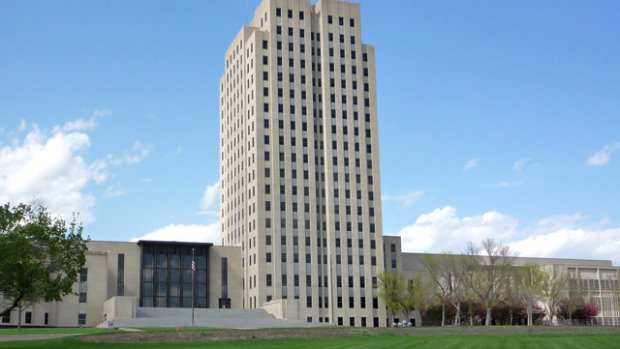Should State Regulatory Boards Have Lobbyists?

Over at Watchdog today I have a story up about the State Bar Association of North Dakota getting sued by a proponent of Measure 6 on the 2014 ballot (the shared parenting measure) who claims that his attorney licensing fees were used illegally for political purposes.
For their part the SBAND doesn’t deny that they used licensing fees from attorneys to pay for opposition to the measure, but they contend that the issue wasn’t political and that refunds they offered to attorneys inoculates them against any wrong-doing.
That issue will be settled in court, but what about other officially-sanctioned occupational licensing boards using money for political activities? Because that’s happening too, as I note in my story:
The bar association is just one state-sanctioned occupational licensing group. North Dakota has dozens of state boards created to monitor and regulate certain professions, and many of these groups seem to be dipping their toes into political waters as well.
At least seven regulatory boards have lobbyists registered for the state’s on-going legislative session, according to a database maintained by the Secretary of State’s office.
JoDee Wiedemeier, executive secretary for the Board of Podiatric Medicine, which has a lobbyist currently working at the state’s 2015 legislative session, says registering personnel as lobbyists is a necessity for them to communicate with lawmakers.
“She’s legal counsel for the board,” Wiedemier said, referring to Stacey Moldenhaur who holds lobbyist badge #315. “In order to appear at the Legislature in that capacity she has to be registered.”
Contacted for comment, Secretary of State Al Jaeger declined to offer an opinion on the legality of state regulatory boards hiring lobbyists, but he did point to a section of state law that states lobbying disclosure requirement law “does not apply to any person who is…[a]n employee, officer, board member, volunteer, or agent of the state or its political subdivisions whether elected or appointed and whether or not compensated, who is acting in that person’s official capacity.”
In a 1998 legal opinion requested by a lawmaker regarding lobbying efforts by county officials, former Attorney General Heidi Heitkamp found “the use of public funds for such activities is not lawful,” though she went on to state the use of private dollars for lobbying would be legal.
When asked about the Board of Podiatric Medicine’s revenues, Wiedemeir said the organization receives no general fund appropriations and is funded by legally mandated fees on podiatrists.
Chapter 21-04 of the North Dakota Century Code defines “public funds” as including “funds of which any board, bureau, commission, or individual, created or authorized by law, is authorized to have control as the legal custodian for any purpose whatsoever.”
Other state boards with lobbyists registered for the 2015 legislative session are the Board of Engineers and Land Surveyors, the Board of Nursing, the Board of Physical Therapy, the State Board of Architecture, the State Board of Dental Examiners and the State Board of Medical Examiners.
It’s one thing for these groups to work on issues related to the professions they regulate. It’s quite another for the state regulatory board to begin acting as a de facto advocacy association on behalf of their respective industries.




